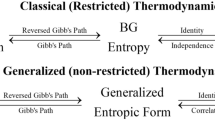Abstract
THEORETICAL arguments justify the assumption that, while nuclear electrons elude every dynamical treatment, the dynamics of the particles of proton mass in the nuclei is in accord with the general quantum-kinematical scheme.1 The forces of interaction, however, seem to exceed ordinary Coulomb forces considerably. The binding energy E per particle, for example of a system of two particles of proton mass M in its lowest quantum state, should be for attractive Coulomb forces between tho particles: E ˜Me48h2 ˜ 6000 electron volts. that is, about a thousand times less than the actually observed binding energy per proton in the α-particle.
This is a preview of subscription content, access via your institution
Access options
Subscribe to this journal
Receive 51 print issues and online access
$199.00 per year
only $3.90 per issue
Buy this article
- Purchase on Springer Link
- Instant access to full article PDF
Prices may be subject to local taxes which are calculated during checkout
Similar content being viewed by others
References
Cf. N. Bohr, Address to the Rome Congress on Nuclrar Physics, 1931.
Cf. Camow, "Constitution of Atomic Nuclei and Radioactivity," Oxford. 1931.
Cf. Bethe, Z. Phys., 76, p. 293, 1932.
Author information
Authors and Affiliations
Rights and permissions
About this article
Cite this article
DELBRÜCK, M. Possible Existence of Multiply Charged Particles of Mass One. Nature 130, 626–627 (1932). https://doi.org/10.1038/130626a0
Issue Date:
DOI: https://doi.org/10.1038/130626a0
Comments
By submitting a comment you agree to abide by our Terms and Community Guidelines. If you find something abusive or that does not comply with our terms or guidelines please flag it as inappropriate.



